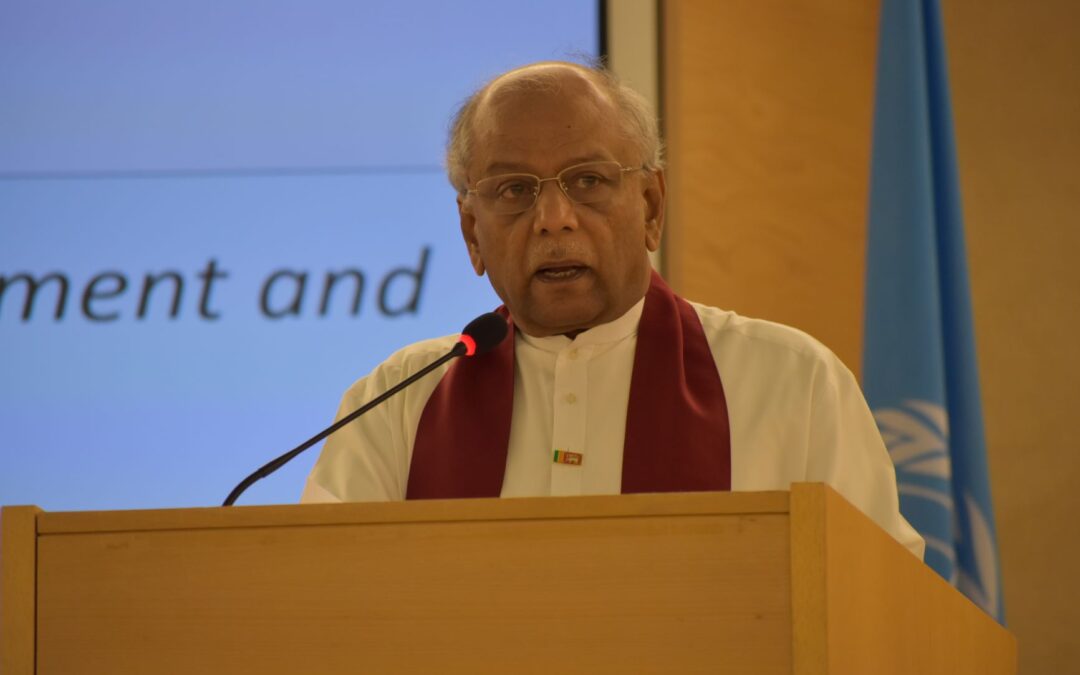
Feb 27, 2020 | News
The ICJ today condemned the Sri Lankan Government’s announced “withdrawal” of support for the process under UN Human Rights Council (UNHRC) Resolutions 30/1, 34/1 and 40/1.
Minister of Foreign Affairs, Dinesh Gunawardane, formally announced the decision on 26 February at a High-Level Segment of the 43rd session of the UNHRC in Geneva.
“The Government of Sri Lanka’s refusal to implement effective measures for truth, justice, accountability and reconciliation, including as set out in the resolutions of the Human Rights Council, places it in violation of its obligations under international law,” said Frederick Rawski, ICJ’s Regional Director for Asia and the Pacific. “Holding perpetrators of human rights violations accountable at the international level now appears to be the only real option – including referral to the International Criminal Court, the creation of an ad hoc international mechanism, and the exercise of universal jurisdiction.”
Gunawardane stated that the Government of Sri Lanka would instead “achieve sustainable peace through an inclusive, domestically designed and executed reconciliation and accountability process, including through the appropriate adaptation of existing mechanisms, in line with the Government’s policy framework.”
“It is the Sri Lankan Government’s failure to initiate a credible and comprehensive approach to transitional justice in the aftermath of the war that led to the intervention of the international community in the first place,” said Rawski. “Sri Lanka’s domestic legal system has repeatedly demonstrated that it is unable to address systemic and entrenched impunity for crimes under international law perpetrated by the military and security forces,” he added.
Pronouncements by the President, on protecting military personnel from any accountability measures coupled with appointments to senior command positions individuals credibly accused of serious human rights violations indicate that the long history of impunity of security forces in Sri Lanka is set to continue.
The ICJ is deeply concerned that the Government’s official refusal to implement the UN resolutions comes at a time when the human rights situation in Sri Lanka is rapidly deteriorating. It threatens to undermine even the meagre progress made over the past few years, which albeit slow and wholly insufficient, has been primarily due to the continued engagement of the Council, OHCHR and international community. The UNHRC process is also the only forum at the global level where Sri Lankan civil society and victim groups have had the opportunity to engage openly in dialogue with the Government and other States on human rights concerns in Sri Lanka.
The validity of adopted resolutions of the Council does not depend on their acceptance by the government concerned. Reporting and discussion of Sri Lanka’s implementation or failure to implement them will take place this year and in 2021 at the Council regardless of the Government’s position.
Contact
Frederick Rawski, ICJ’s Asia Pacific Regional Director, t: +66 2 619 84 77; e: frederick.rawski(a)icj.org
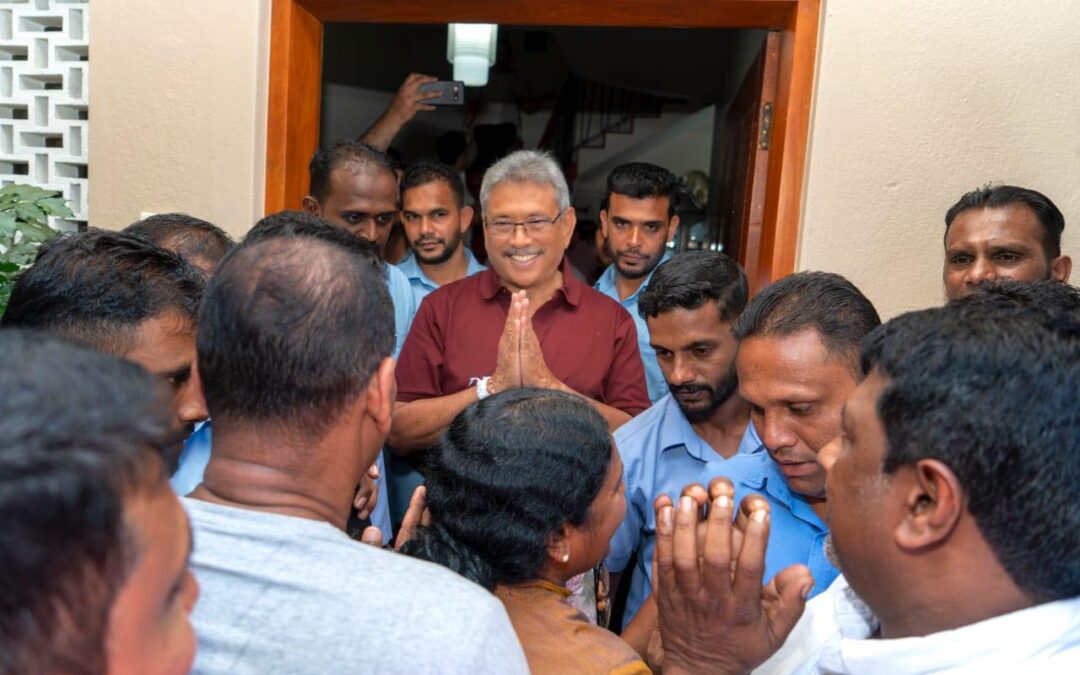
Nov 19, 2019 | News
Sri Lanka’s newly elected president, Gotabaya Rajapaksa and his government must demonstrate that they will uphold human rights and rule of law, and ensure that Sri Lanka sustains its international obligations and commitments to justice and accountability, said the ICJ today.
Gotabaya Rajapaksa faces credible allegations of involvement in war crimes and crimes against humanity that took place during the country’s armed conflict.
“The election of Gotabaya Rajapaksa, after a highly polarizing campaign, has alarmed human rights defenders in Sri Lanka and abroad, who have little reason to believe that someone facing such serious allegations of perpetrating human rights violations can be relied upon to meet the country’s obligations under international law,” said Frederick Rawski, ICJ Asia Pacific Director.
Gotabaya Rajapaksa, who won the presidency with 52.25% of votes, served as Sri Lanka’s Secretary of the Ministry of Defence from 2005 to 2015 during the tenure of his brother Mahinda Rajapaksa, at the height of the armed conflict against the Liberation Tigers of Tamil Eelam (LTTE).
Both the military and LTTE perpetrated war crimes and gross human rights violations during the conflict, and particularly during its bloody final stages. As Defence Secretary, Gotabaya was accused of ordering the killing of surrendering LTTE fighters, ordering strikes on civilians and hospitals, and authorizing attacks on human rights defenders.
International condemnation of atrocities committed during the conflict led to the UN Human Rights Council demanding that the Sri Lankan government commit to a process of transitional justice, in view of the systematic failures of accountability mechanisms in Sri Lanka in the past, as documented by the ICJ in its submission to the Human Rights Council, and others. Despite commitments from the Sri Lankan government, the transitional justice process has effectively stalled and impunity has prevailed.
“The ICJ is deeply concerned that even the limited strides made over the past five years in Sri Lanka on transitional justice, positive constitutional amendments and institutional reform will be reversed,” said Rawski.
The ICJ urged the Government to deliver on its commitment to the transitional justice process, including by holding those responsible for human rights violations and abuses accountable, and complying with the obligations set out in United Nations Human Rights Council Resolutions 30/1, 34/1 and 40/1.
Contact:
Frederick Rawski, ICJ’s Asia Director, t +66 644781121; e: frederick.rawski(a)icj.org
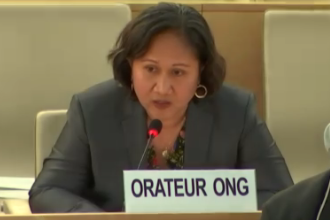
Mar 20, 2019 | Advocacy, Non-legal submissions
The ICJ today called at the UN for prompt establishment of a judicial accountability mechanism with international involvement, for Sri Lanka.The statement, delivered during an interactive dialogue on the OHCHR report on Sri Lanka at the Human Rights Council in Geneva, read as follows:
“The ICJ welcomes the comprehensive report of the OHCHR on promoting reconciliation, accountability and human rights in Sri Lanka (A/HRC/40/23). We share OHCHR’s observation that there is a lack of progress and absence of a comprehensive strategy for implementation of all commitments made under Resolution 30/1.
ICJ is particularly concerned about the lack of progress in the area of criminal accountability (as noted in Paragraph 27 of the report). We believe that there is an urgent need to establish a judicial mechanism with the involvement of foreign judges. We echo the sentiments of the OHCHR regarding the inability of the Sri Lankan courts, on their own, to address the impunity of security forces for crimes under international law.
Failure of the criminal justice system to effectively address emblematic cases (as reflected in Paragraph 38 of the report) clearly indicates the level of capacity and willingness on the part of the State even today to prosecute and punish perpetrators of serious crimes when they are linked to the security forces or other positions of power.
ICJ also notes that women are grossly under-represented in the judiciary in Sri Lanka, which prevents women human rights defenders and female victims from having confidence in the ordinary criminal justice system, impeding their full engagement and participation in pursuing accountability for crimes committed against them during the conflict and other transitional justice processes.
A judicial mechanism with the involvement of foreign judges is particularly urgent for women in conflict-affected areas who still live in a highly militarized environment and are compelled to live among their perpetrators – those who have been accused of war crimes including rape and other forms of sexual violence.
We therefore reject calls for a purely domestic mechanism. Indeed, the ICJ considers that the continuing failure of the Government to ensure justice means that referral to the International Criminal Court or the creation of another international mechanism to facilitate criminal accountability would be fully warranted. The draft resolution before this session of the Council, reaffirming all elements of resolution 30/1, thus already represents a deep compromise and anything less than the existing text would be wholly unacceptable.
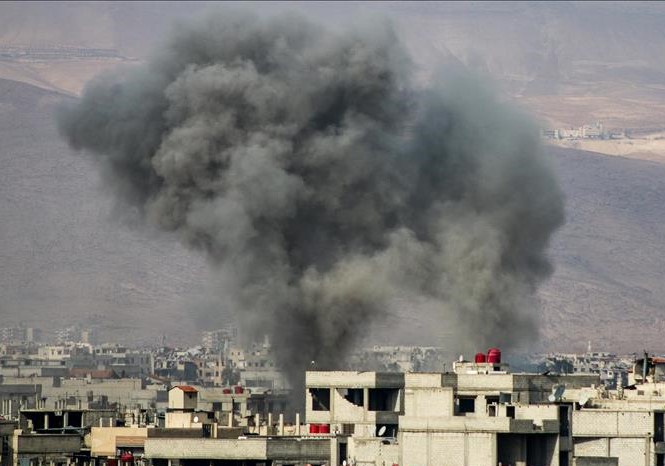
Feb 23, 2018 | News
The ICJ today called on the governments of Syria and Russia to cease all attacks on the civilian population in Eastern Ghouta.
Intentionally directing attacks against the civilian population and civilian objects, including hospitals, constitutes a war crime.
All those responsible for such crimes must be held accountable.
“The UN Security Council is blatantly failing to discharge its primary responsibility for maintaining international peace and security. It’s so paralyzed by division that it cannot even enforce its own resolutions on protecting the civilian population in Syria and ensuring unimpeded humanitarian access,” said Said Benarbia, Director of the ICJ Middle East and North Africa Programme.
“After 7 years of shielding the Syrian regime from accountability for its egregious crimes, including the use of chemical weapons, Russia is joining forces with this regime’s cynical enterprise to murder and starve its own people,” he added.
The air and artillery bombing campaign conducted by the Syrian government, with the backing of Russia, have caused hundreds of victims since Sunday.
The destruction of hospitals and the lack of basic supplies and medicines are making the living conditions of the civilian population extremely dire.
Under international humanitarian law, the Syrian government and its ally Russia have obligations to protect the civilian population and to grant rapid and unimpeded passage to humanitarian relief for the residents of Eastern Ghouta.
The UN Security Council imposed a disarmament plan concerning the Syrian chemical arsenal, yet credible reports of government use of chemical weapons against civilians continued to emerge as late as January and February 2018, in particular in Eastern Ghouta and Saraqeb.
In its last report in October 2017, the OPCW-UN Joint Investigative Mechanism established the responsibility of the Syrian government for the use of chemical weapons.
In the same month, Russia vetoed a resolution to renew the Mechanism’s mandate.
“States must act individually and collectively to stop the escalation of horrors we are witnessing in Eastern Ghouta. They must also ensure, including through any means available in their national legal systems, as well as at the regional and international level, that all those responsible for the war crimes, crimes against humanity and other international crimes committed in Syria, irrespective of their nationality, rank or status, are brought to justice,” Benarbia added.
Contact
Said Benarbia, Director of the ICJ Middle East and North Africa Programme, tel: +41 798783546, e-mail: said.benarbia(a)icj.org
Syria – Ghouta Bombing – News – Webstory – 2018 – ARB (Arabic translation in PDF)
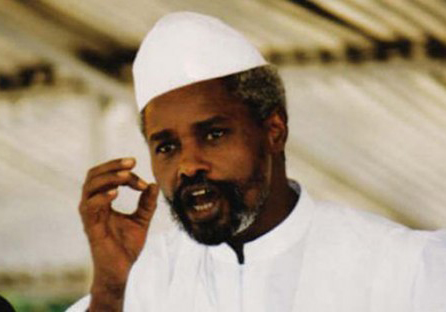
Apr 27, 2017 | News
An appeals court’s confirmation of the conviction for crimes against humanity, war crimes and torture of Hissène Habré, the former president of Chad, is a vindication of the decades-long campaign waged by his survivors, the ICJ and two human rights groups supporting the victims said today.
Habré’s May 2016 conviction was upheld by the appeals chamber of the Extraordinary African Chambers in the Senegalese court system on April 27, 2017.
The appeals court also confirmed the life sentence handed down by the trial court and ordered Habré to pay over 82 billion CFA francs (approximately 123 million euros) to his victims.
“This is a crowning victory for Hissène Habré’s victims, who for 26 years never gave up fighting to bring him to justice” said the ICJ Commissioner Reed Brody, who has worked with the survivors since 1999.
“His life sentence is a wake-up call to tyrants everywhere that if they engage in atrocities they will never be out of the reach of their victims,” he added.
The appeals court also upheld the decision to order compensation to Habré’s victims and said that a trust fund created by the African Union (AU) should be tasked with searching for and recovering Habré’s assets.
A summary of the decision was read out in court by chief judge Ougadeye Wafi, a judge of the Supreme court of Mail, who shared the bench with two senior Senegalese judges.
Habré, who ruled Chad from 1982 to 1990, was not in court for the judgment. He did not recognize the chambers’ authority and sat silently throughout the trial.
His court-appointed lawyers filed the appeal on his behalf.
Hissène Habré fled to Senegal in 1990 after being deposed by the current Chadian president, Idriss Déby Itno. Although Habré was first arrested and indicted in Senegal in 2000, it took a long campaign by his victims before the Extraordinary African Chambers were inaugurated by Senegal and the AU in February 2013 to prosecute crimes under international law committed in Chad during Habré’s rule.
“I have been fighting for this day since I walked out of prison more than 26 years ago,” said Souleymane Guengueng, who nearly died of mistreatment and disease in Habré’s prisons, and later founded the Association of Victims of Crimes of the Regime of Hissène Habré (AVCRHH). “Today I finally feel free.”
Habré’s trial was the first in the world in which the courts of one country prosecuted the former ruler of another for alleged human rights atrocities.
“At long last, after so many years of fighting, so many years of setbacks, we have achieved what we set out to do,” said Jacqueline Moudeina of Chad, the victims’ chief lawyer and president of the Chadian Association for the Promotion of Human Rights (ATPDH).
The appeals court said that while it accepted the credibility of the witness Khadidja Hassan Zidane who stated that Habré personally raped her on four occasions, it could not convict Habré of personal having committed rape because the charge was not included in the individual indictment.
In the ruling upheld today, the trial court awarded each survivor of rape and sexual slavery 20 million CFA francs (approximately 30,489 Euros, US$32,702), each survivor of torture and arbitrary detention and each mistreated former prisoner of war 15 million CFA francs (22,867 Euros, US$24,526), and family members of victims 10 million CFA francs (15,244 Euros, US$16,350).
It said that 7,396 victims were eligible for reparations and that 3,489 others who had not produced sufficient proof could apply to the trust fund.
The court has already frozen some assets belonging to Habré including a house in an upscale Dakar neighborhood believed to be worth about 680,000 Euros as well as some small bank accounts. Habré is thought to have much more extensive assets.
“Money will never bring back my friends,” said Clément Abaïfouta, who as a prisoner was forced to bury other detainees in mass graves, and is now president of the AVRCHH. “But money is important to heal the wounds, to take victims out of poverty, and to show that we have rights that must be recognized.”
“With this verdict, we can now try to locate and seize Habré’s assets and make sure the victims are compensated,” said lawyer Moudeina.
Contact
Reed Brody, ICJ Commissioner, t: +221-76-618-79-10 (in Dakar) or +1-917-388-6745 ; e: reedbrody(a)gmail.com
The full text of the press release can be downloaded in English and in French below:
Chad-HisseneHabre Conviction Upheld-News-Press Releases-2017-ENG (English, PDF)
Tchad-Hissene Habre peine confirmee-News-Press Releases-2017-FRE (Français, PDF)









